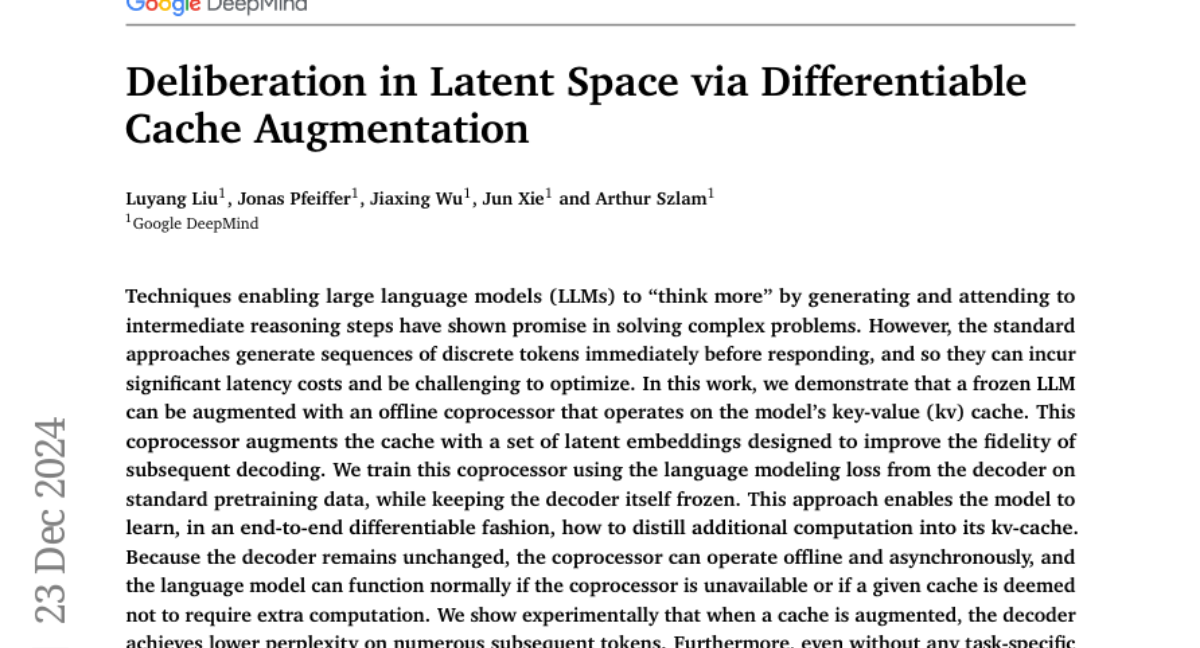Deliberation in Latent Space via Differentiable Cache Augmentation
Luyang Liu, Jonas Pfeiffer, Jiaxing Wu, Jun Xie, Arthur Szlam
2024-12-24

Summary
This paper talks about a new method called Deliberation in Latent Space via Differentiable Cache Augmentation, which helps large language models (LLMs) think more effectively by allowing them to store and refine their intermediate reasoning steps before giving final answers.
What's the problem?
When LLMs generate responses, they often do it quickly by producing one token (word or part of a word) at a time. This process can be slow and inefficient, especially for complex problems. Additionally, traditional methods don't allow the models to think through their responses thoroughly, leading to less accurate or lower-quality outputs.
What's the solution?
The authors propose a system where a separate component, called a coprocessor, works alongside the main LLM. This coprocessor enhances the model's memory (called the key-value cache) by adding useful information that helps the model think more deeply about its responses. It allows the model to generate intermediate thoughts that can be refined before producing the final answer. This method improves the model's ability to reason and results in better performance on various tasks without needing to change the original model significantly.
Why it matters?
This research is important because it shows a new way for AI models to improve their reasoning abilities, making them more effective at handling complex tasks. By enabling LLMs to deliberate on their thoughts like humans do, this approach can lead to better applications in areas such as education, content creation, and problem-solving, ultimately enhancing how we interact with AI.
Abstract
Techniques enabling large language models (LLMs) to "think more" by generating and attending to intermediate reasoning steps have shown promise in solving complex problems. However, the standard approaches generate sequences of discrete tokens immediately before responding, and so they can incur significant latency costs and be challenging to optimize. In this work, we demonstrate that a frozen LLM can be augmented with an offline coprocessor that operates on the model's key-value (kv) cache. This coprocessor augments the cache with a set of latent embeddings designed to improve the fidelity of subsequent decoding. We train this coprocessor using the language modeling loss from the decoder on standard pretraining data, while keeping the decoder itself frozen. This approach enables the model to learn, in an end-to-end differentiable fashion, how to distill additional computation into its kv-cache. Because the decoder remains unchanged, the coprocessor can operate offline and asynchronously, and the language model can function normally if the coprocessor is unavailable or if a given cache is deemed not to require extra computation. We show experimentally that when a cache is augmented, the decoder achieves lower perplexity on numerous subsequent tokens. Furthermore, even without any task-specific training, our experiments demonstrate that cache augmentation consistently reduces perplexity and improves performance across a range of reasoning-intensive tasks.